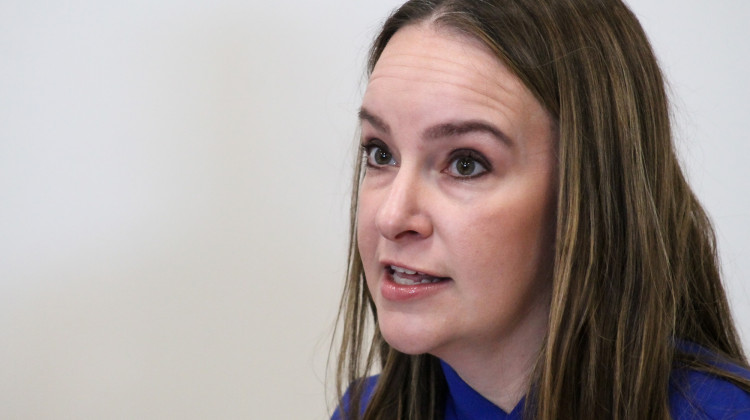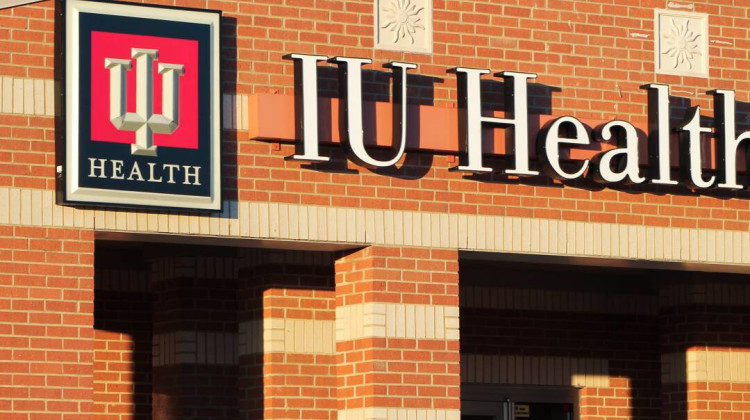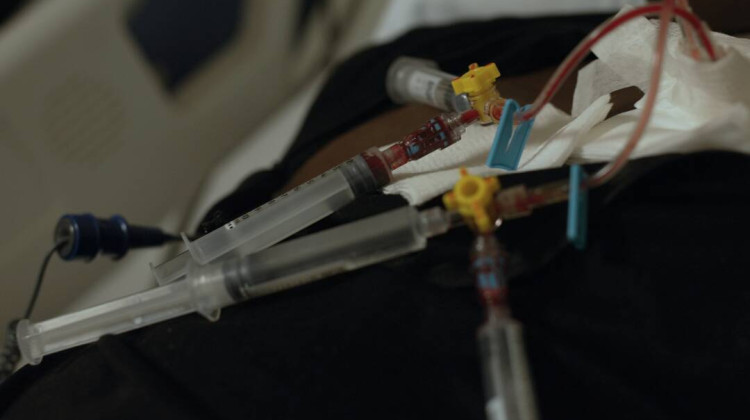
Indiana Medicaid Director Cora Steinmetz reiterated FSSA does not have “regular insight or transparency” into arrangements between provider agencies and direct caregivers.
Lauren Chapman / IPB NewsThe Family and Social Services Administration said in February it was not aware of how much money certain caregivers were paid. The agency announced it will implement a minimum “pass-through” rate prompted by legislation signed into law this year.
Indiana Medicaid does not directly pay caregivers in the attendant care and Structured Family Caregiving programs. Instead, the state pays provider agencies who then pass part of that onto caregivers. In the past, there wasn’t a required amount that agencies had to give to people actually delivering the care.
Now, caregivers are guaranteed a minimum percentage of what the state pays — although that amount is different for each program.
Indiana Medicaid Director Cora Steinmetz said the rate for attendant care is 10 percent higher than Structured Family Caregiving.
“The model accounts for employee-related expenses such as benefits, paid time-off and employer taxes,” Steinmetz said.
Steinmetz said caregivers in the Structured Family Caregiving program would receive that money as a stipend rather than in a wage and benefit structure like attendant care.
Indiana pays provider agencies a little bit more than $34 for an hour of attendant care. In February, FSSA said caregivers indicated that they received less than half that amount. This new rate would mean caregivers receive 70 percent.
Join the conversation and sign up for the Indiana Two-Way. Text "Indiana" to 765-275-1120. Your comments and questions in response to our weekly text help us find the answers you need on Medicaid and other statewide issues.
The Structured Family Caregiving program has three tiers that receive amounts ranging from more than $77 a day to a little more than $133 a day. Caregivers would receive 60 percent of that with this new minimum rate.
“These percentages are structured as minimums, so [provider agencies] may choose to develop a compensation arrangement that passes more than this minimum amount to the direct caregiver,” Steinmetz said.
Steinmetz also reiterated FSSA does not have “regular insight or transparency” into arrangements between provider agencies and direct caregivers.
HEA 1120 included the language that required the FSSA to set this minimum after the agency implemented several policies following Medicaid’s $1 billion forecasting error last year.
These rate minimums will affect attendant care and Structured Family Caregiving under the Health and Wellness, Traumatic Brain Injury and Pathways waivers. These waivers provide home- and community-based services to older and medically vulnerable Hoosiers.
Abigail is our health reporter. Contact them at aruhman@wboi.org.
 DONATE
DONATE






 Support WFYI. We can't do it without you.
Support WFYI. We can't do it without you.